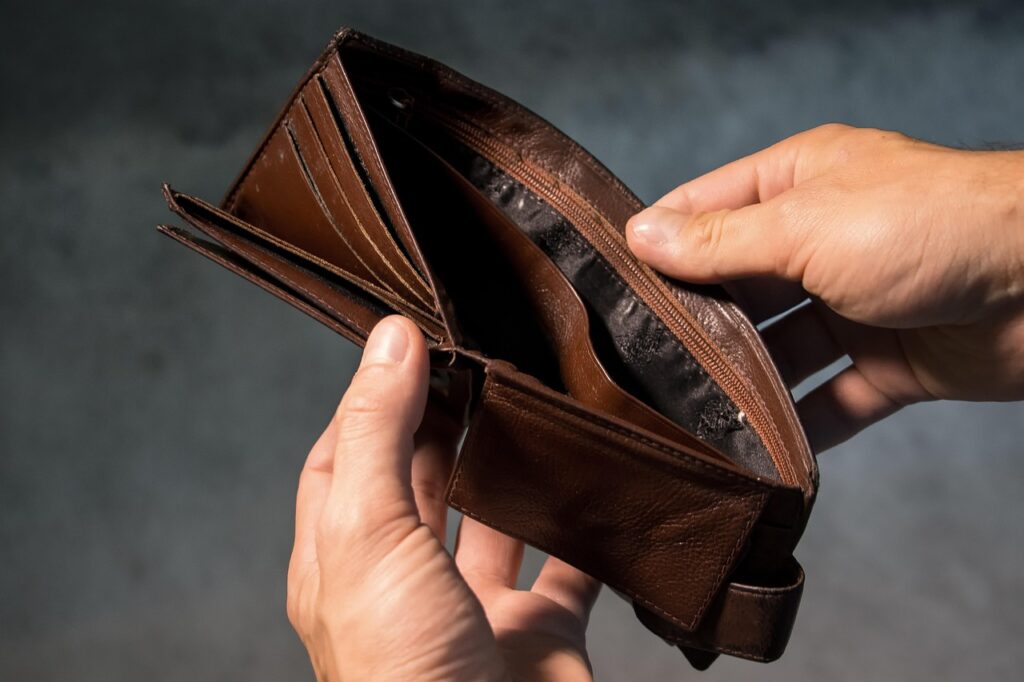Let’s be honest, saving money in Nigeria when your salary is less than ₦50,000 feels almost impossible.
Between transport, food, bills, and unexpected “urgent 2k” requests, it looks like your money disappears before month-end.
But here’s the truth: you can still save, even on a small income. It may not be huge at first, but little drops of water truly make an ocean. The secret is being intentional, disciplined, and smart with how you manage money.
When you build the habit of saving, those little amounts can later grow into investment opportunities like stocks. If you’re interested, here’s the Easiest Way to Buy the Best Bank Stocks in Nigeria in 2025.
In this article, I’ll share practical ways you can save money in Nigeria even if you earn less than ₦50k/month.
. Track Where Your Money Goes

The first step to saving is knowing where your money goes.
- Write down every single expense for a month — from transport to airtime, snacks, and small purchases.
- Use a notebook, spreadsheet, or even a simple note app on your phone.
- After tracking, you’ll see areas where you can cut back, even if it’s just ₦200–₦500 per day.
Example:
If you spend ₦500 every day on okadas or tricycles for short distances, that’s ₦15,000 a month. If you instead walk or use a cheaper shared transport option even half the time, you could save around ₦7,500–₦10,000 a month. That’s almost 20% of your monthly income saved just by being a bit strategic with transport.
. Apply the 50/30/20 Rule (Adjusted for Nigeria)
The 50/30/20 rule is a popular budgeting method designed to help you manage your money effectively. It divides your income into three categories:
- 50% for Needs – essentials like rent, food, transportation, and bills.
- 30% for Wants – non-essential expenses such as hanging out with friends, streaming subscriptions, or small treats.
- 20% for Savings – building an emergency fund, investing, or paying off debt.
On paper, it sounds simple, but if you earn less than ₦50,000/month, the standard split may be unrealistic. Essentials like rent, groceries, and transport can easily consume more than 50% of your income, leaving little for savings or enjoyment.
Now, on ₦50k, this may look unrealistic, but here is an adjusted version to fit people earning below ₦50,000:
- 70% needs
- 20% savings
- 10% enjoyment
Even if you can only save ₦5,000 a month, that’s ₦60,000 in one year.
. Automate Your Savings
The easiest way to save money is to remove temptation. Many people wait until the end of the month to see “what’s left” but usually, by then, there’s very little to save. Instead, save before you spend, so the money never touches your hands in a way that tempts you to spend it. Here is how to do it practically:
1. Use Savings Apps
Apps like PiggyVest, Cowrywise, Carbon, or ALAT can automatically deduct a set amount from your salary or mobile wallet the moment it arrives.
- Perfect for those earning less than ₦50,000, because it enforces consistency without relying on willpower.
- Money is automatically moved to savings before you can spend it, reducing the temptation to overspend.
2. Start Small and Be Consistent
Even small daily savings add up over time.
- Saving ₦500/day may seem tiny, but by the end of the month, you’ll have around ₦15,000.
- If ₦500 is too high, start with ₦200–₦300/day, which totals ₦6,000–₦9,000/month — enough to cover minor emergencies or seed a small side hustle.
3. Automate Weekly Deductions
If your income is irregular or weekly, you can automate savings on a weekly basis instead of daily.
- For example, save ₦2,500 every Friday directly from your wallet or salary.
- By month-end, you’ll still have ₦10,000 saved automatically without even thinking about it.
Key Tip: Out of Sight = Out of Spend
Once the money leaves your accessible wallet or bank account, it’s much harder to spend impulsively. Automating your savings turns discipline into a habit, even on a small income.
. Find a Side Hustle (No Matter How Small)
On ₦50k, you’ll struggle if you depend on only one income.
Look for small side hustles you can do:
- Freelancing (writing, design, social media management)
- Selling small items (perfumes, thrift clothes, foodstuffs)
- Offering a service ( tutoring, laundry)
Even an extra ₦10k monthly can boost your savings. As you save more, you can explore other profitable businesses you can start with ₦500k in Nigeria, which have the potential to scale your income significantly.
. Join a Trusted Savings Group (Ajo/Esusu)
If you struggle to save alone, join a cooperative, ajo, or esusu with trusted people.
When it’s your turn to collect, don’t “chop life.” Invest or use it for something meaningful.
. Conclusion
Saving money in Nigeria on less than ₦50k is not easy — but it’s possible.
Start small, be consistent, and focus on building the habit.
Remember: it’s not about how much you save, but how consistent you are.
Even ₦100 daily is better than nothing. Over time, your discipline will prepare you for when you start earning more.
What’s your biggest challenge when trying to save money in Nigeria?
Let’s Know in the comment.
